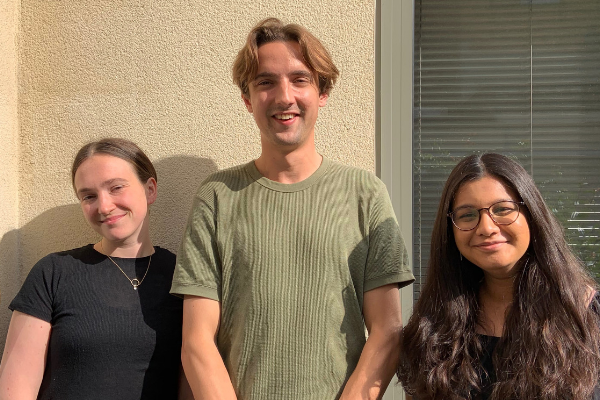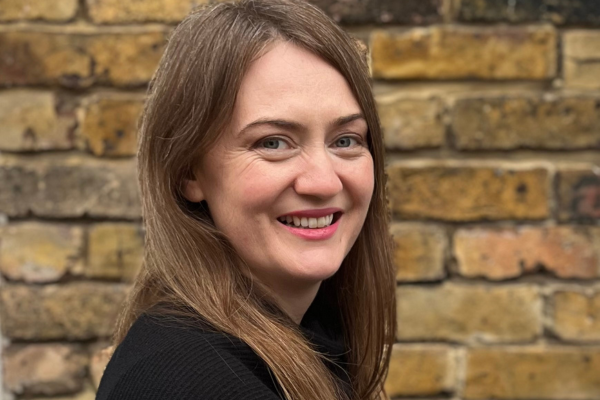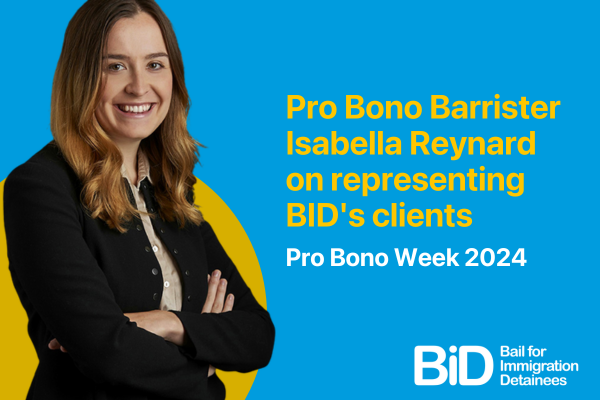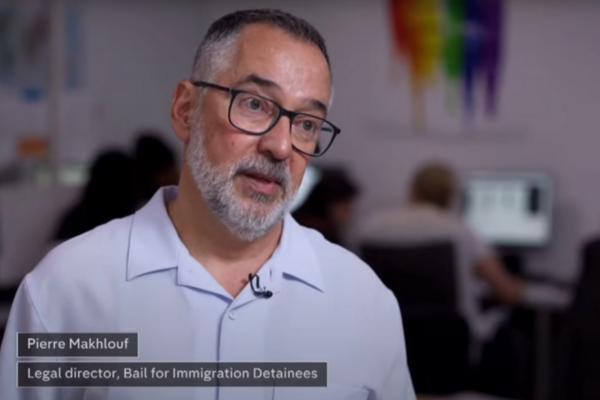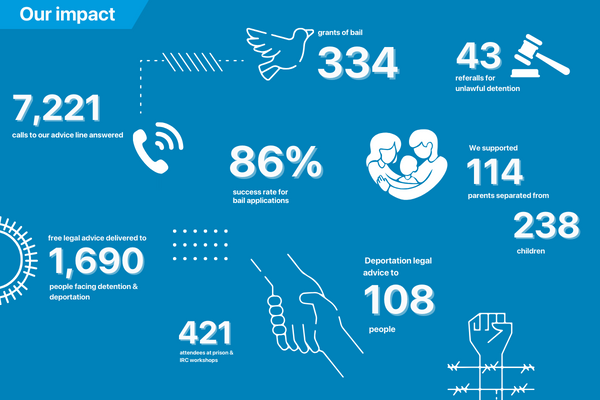As BID turns twenty years old, we want you to help us #EndDetention so that we are no longer needed. This summer we have a range of Anti-Birthday gifts ranging from £15 to £250 which can be purchased to support our work. Over the next few weeks, we will be focusing on the many barriers to justice our clients face and how each gift can help address these.
For many people who are detained, BID’s advice line is the first point of contact for legal advice. The advice line pack is priced at £60 – that is what it costs to keep our advice line running each morning. In this article Charlotte Rubin, one of our volunteer caseworkers, captures the atmosphere of our busy casework office while the advice line is open.
“Bail for Immigration Detainees, how can I help?” is a sentence heard many times in the BID office - 32 times today, to be precise. As the lines open at 10AM, our volunteers take clients’ calls to help resolve issues and progress their cases.
At 10:09, Feena receives a call from a client whose bail hearing was cancelled because First-tier Tribunal failed to make the necessary arrangements to have our client present at the hearing, either physically or by videolink. The tribunal adjourned the hearing and relisted it for two days after the original date. This may not seem like a long time waiting, but for every person held in immigration detention every hour deprived of your liberty makes a difference.
At 10:16, Laura checks through a client’s grounds for bail so that he can lodge his application. He has a newborn baby and has been in detention since early July. Awaiting his hearing, he overdosed in the detention centre where he was being held, and he is now recovering in the hospital. After double-checking his documents and reviewing them with her supervisor, Laura calls the client’s wife and leaves a voicemail to let her know that all documents are ready, explaining that because the client is in the hospital, she will send his papers to her instead of the detention centre. She will try to reach her again in a couple of hours to ensure that the client can lodge his application as soon as possible.
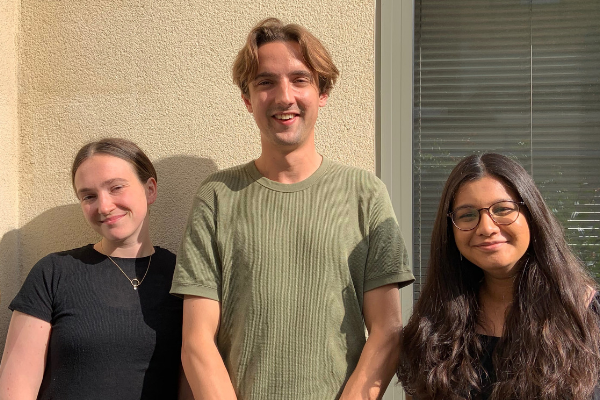
At 10:19 Smriti gets a call from a client who has been in detention since mid-April. She asks how she can help him, and then gasps: “Oh, you’re out?” the whole office looks up; “That’s great!” and everyone cheers. He tells us he has been released from the detention centre and is now allowed to study and work in the UK, as long as he reports every two weeks. He thanks us for our help.
At 10:22, someone calls because her partner, who is currently in detention at Colnbrook IRC, did not receive BID’s Outreach Information Pack. One of our Legal Managers, Adam, checks the file and confirms that the fax has in fact gone through. Colnbrook staff failed to deliver the outreach pack to our client, requiring BID to resend it via email and fax.
At 10:25, a client called from Harmondsworth IRC. The doctor had submitted a report to the Home Office stating concerns that he is a victim of torture and that further detention would be detrimental for the client’s health. Nevertheless, he remains in detention over a week later, a situation which unfortunately, is not uncommon amongst vulnerable detainees.
At 10:39, Ravina asks a legal manager to check an email she’s written to a barrister representing one of BID’s clients in court. Every task completed by a volunteer caseworker must be signed off by the Legal Manager.
At 10:46, Ravina gets a call from a new client, a victim of torture with no criminal record, detained at Colnbrook facing enforced removal to his home country. She opens a file for him and sends him BID’s Outreach Pack, which contains all the documents we need in order to help him with his case. Once he sends these back to us with his details, we can get started on his bail application.
At 10:47, Feena gets a call from a new client. She records some initial information – he has been in the UK for almost 20 years, and has five children in the country. He is now being detained at Harmondsworth IRC. Feena opens his electronic file on BID’s server, sends him BID’s Outreach Pack and refers his case to the Legal Manager of BID’s dedicated Separated Families’ team for representation.
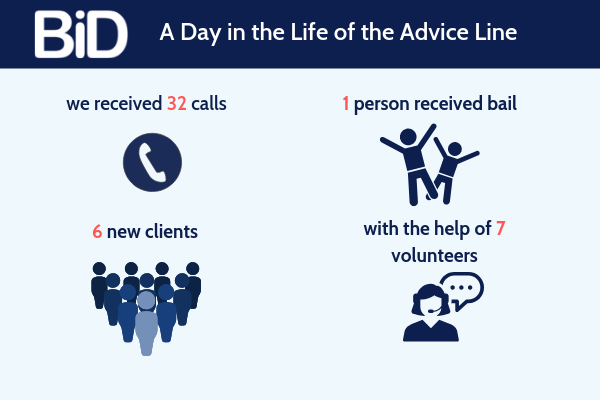
At 11:02, Orlando comes in and asks Adam whether his team should represent a client whose medical evidence has been ignored by the Home Office. Orlando helps the Right to Liberty project, which represents particularly vulnerable detainees as well as those who have been detained for excessively long periods.
At 11:06, Adam reviews the grounds for bail of a Commonwealth national who came to the UK when he was eight years old, over a decade ago, and who has now been in detention since April
At 11:07, a new client calls in who does not speak much English – this is where our volunteers’ language skills come in handy. Jolly, one of our volunteers, speaks Vietnamese and will return the client’s call. In the meantime, Ravina will create a file for him with the limited information we have on the case. When no one from BID’s staff speaks the required language, we use a telephone translator service to help the client further.
At 11:14, a client calls and asks for Smriti – his bail application was refused last week, and he’s very upset. He prefers speaking to Smriti as she knows his case best. The client unfortunately has to wait another 28 days before he can lodge a fresh application. After speaking to the Legal Manager who reviews the case, Smriti advises the client that BID will take on the case for representation at his next hearing.
When the advice line is less busy, as it was today from about a quarter past 11 until the closing of the line, volunteers receive small tasks from the Legal Manager to complete between calls – these can range from chasing up a probation officer for an approval of address to calling a client to confirm receipt of his documents.
At 11:37, Younes receives a call from a client who has removal directions five days from today. The client has not instructed solicitors and has no idea of how to proceed. Often, clients call for help with their immigration cases, or, like this man, to get their flights back to their home country (booked by the Home Office) cancelled. When removal directions are in place with a removal date set, it is almost impossible to get bail, so Younes advises this man that he needs to prioritise finding an immigration lawyer who can help him to put a stop to his removal and refers him to a few organisations that might be able to help him with this urgent matter.
At 11:42, Amina receives a call from a client currently in detention who has a 3-year-old son and a wife who is six months pregnant. He’s asking for an update on his bail application.
At 12PM, the lines close and volunteers can only talk to clients via outbound calls. In the afternoon, each volunteer receives a task related to that morning’s calls such as assisting with drafting grounds for bail before giving these and the file to the supervisor to review; or extracting and classifying a client’s immigration documents.
We don’t usually record the number of incoming calls, but today, we gather round to add up our tallies, reflecting on the amount of work completed on what, felt like a comparatively quiet morning.
- 7 volunteers
- 32 calls
- 6 new clients
- 1 person granted bail!
In a single day, we’ve spoken to people from Iran, Pakistan, South Africa, Poland, Vietnam, Nigeria, Zimbabwe, Jamaica and other places. All of them are unified by their desire to be free and enjoy their universally recognised right to liberty. Thanks to your anti-birthday gift, BID will be able to help these people and countless others to do just that.
A big thank you to casework volunteers Charlotte, Feena, Ravina, Laura, Younes, Smriti, Amina and all our other volunteers who participated in this piece capturing a day in the life of our advice line.

For many people who are detained our advice line is the first point of call for legal advice. Help us be at the other end of the phone.

